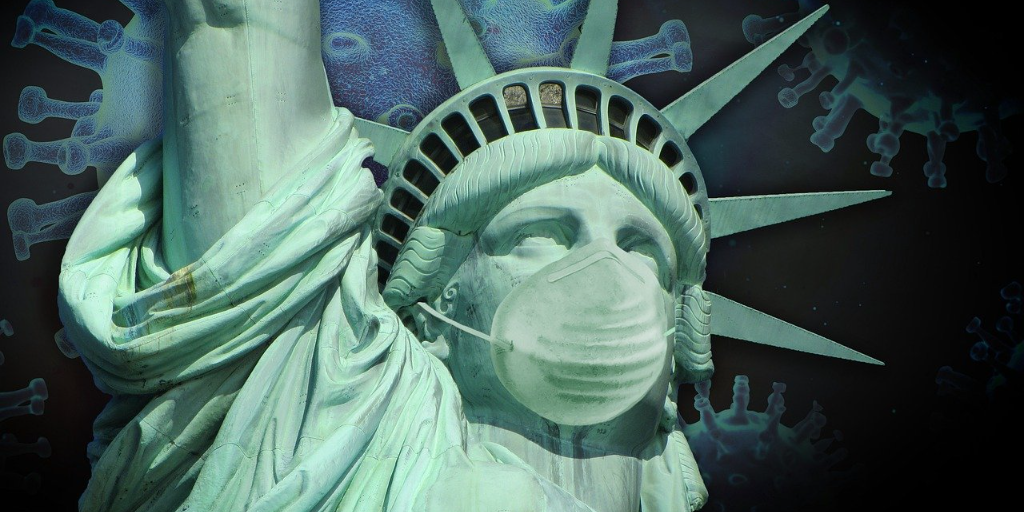Trends of the Covid-19 pandemic on fundraising in the UK and the USA
The charity sector may be going through its toughest time in decades right now, but there are opportunities to be seized, say Daryl Upsall and Jorge Hernando.
- Written by
- Daryl Upsall & Jorge Hernando
- Added
- November 19, 2020

The coronavirus pandemic has wreaked havoc on what we previously took for granted. The tragic loss of life has been accompanied by the challenges of a global economic recession of a magnitude unseen for decades. While the social and mental health crises that preceded the pandemic have been aggravated, the public health measures adopted by many governments have proved to be both useful and necessary to avoid greater harm.
Citizens are responding to the situation by mobilising resources en masse to fund society’s most pressing needs. In the UK, during the initial phase of the pandemic (April to June) 59 per cent of the public donated to a charity. Donors were particularly committed to support the UK’s public healthcare system, the NHS. While before 2020, NHS Charities Together had an annual income of below £500,000, they have raised more than £100 million since the pandemic started and one in three Britons have donated to this cause.
Nonetheless, many UK fundraisers are pessimistic about the future prospects of their organisations. In a recent survey, 29 per cent of respondents said their charity was at risk of disappearing and 62 per cent said their ability to fundraise would be hampered by the pandemic.
In the context of falling incomes and disruption to established channels such as face to face fundraising, the high proportion of young people who are donating and the overall increase in online donations are of interest for the third sector.
Daryl Upsall comments, ‘The massive reduction in the recruitment of new monthly donors via face to face in the UK and elsewhere will have a long-term impact on the impact of the many organisations that rely on this tool. The big shift to new committed donor recruitment via channels such as social media/digital will have hopefully compensated for this, at least in part.’
In the UK, an astonishing 84 per cent of 18 to 24-year olds have donated in the last three months (66 per cent of them online), and 37 per cent of all UK citizens have donated online. While other age groups are also giving very generously (two thirds of the 65 to 80 age group donated during the initial phase of the pandemic), it is young people who are the most energised to give.
Nearly half (47 per cent) of the British public would consider participating in a virtual fundraising event, with the preferred options being virtual quizzes (21 per cent of the general public and 33 per cent of the 18 to 24 age group), followed by a virtual five km walk or run (15 per cent of the general public and 33 per cent of the 18 to 24 age group). These answers point to the fact that young people are particularly engaged to mobilise resources in the face of the pandemic and that going forward there is an opportunity to fundraise through virtual events that keep donors safe but provide a space for socialisation and leisure.
‘The challenge that sector faces is whether these new, largely younger virtual fundraising event donors will stay engaged and move to a long-term commitment to financially supporting the non-profit sector in the future’, questions Daryl Upsall.
In a recent study of foundation philanthropy in the UK by nfpSynergy 76 per cent of grantees and non-successful applicants believed that funders have been very responsive to the outbreak of coronavirus. Charities have been appreciative of the efforts many funders have made to be more flexible with outcomes or indeed offering emergency funding. As one charity said, ‘Funders have been very understanding with regard to project funding, and perhaps not being able to meet outcomes or enabling us to be flexible with how funding is spent.’

In the US, many foundations have adapted to the new circumstances to improve their support to grantees. More than 780 US-based and international foundations have signed the Council of Foundations Covid-19 Pledge that commits to loosen restrictions on grants, donate to emergency community-based funds and reduce reporting requirements from grantees. On the first half of 2020, the Center for Disaster Philanthropy tracked US$11.9 billion of Covid-19 related philanthropic giving worldwide, 63 per cent of which came from the US. In addition, in a recent survey of foundations, 50 per cent of respondents were intent on increasing their payments during 2020.
Case study: King Baudouin Foundation United States (KBFUS):
‘The King Baudouin Foundation United States (KBFUS) launched Emergency Response Funds for six European countries that were being hit particularly hard by the pandemic for eight African countries at risk of being dangerously impacted. The purpose of these Emergency Response Funds was to pool donor contributions, and to distribute that funding to local non-profit organisations working on the frontlines of their country’s response to the crisis.
In addition, KBFUS worked with several corporate foundations to develop customized giving plans, targeting countries and regions that were of particular interest or concern to them. Thanks to the generosity of hundreds of donors who responded to their call, KBFUS made 148 grants (as of August 31), totalling over US$13 million, to support 90 non-profit organisations in 29 countries across Europe and Africa.’
While US foundations are required by federal law to transfer five per cent of their assets in grants every year, no such rule exists for donor advised funds (DAFs). Last May a group of three hundred foundations and major donors wrote to Congress demanding the required amount for foundations increases to ten per cent of assets, and the introduction of the same ten per cent rule for DAFs, in an effort that would mobilise US$200 billion in the next three years.
While the third sector in the UK and the US is already experiencing the adverse effects of the pandemic (loss of fundraising income, increased demand, cuts in services), charities should also be aware of the opportunities lying ahead.
The trends toward digital fundraising, the mobilisation of Generation Z and the increased spending by foundations (at least on the short-term) can make a difference in these difficult times. As the global infection rates are on the rise again, hard lockdowns ever more likely and the negative economic impact that it will create, the question is, ‘how sustainable is the long-term financial future of the third sector?’
Editor's note: This article originally appeared on Daryl Upsall International here, and we would like to thank Daryl and Jorge for allowing us to reproduce it on SOFII.

















